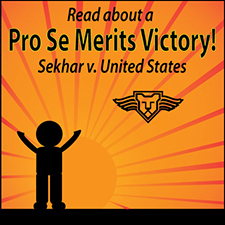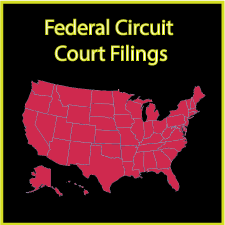Hedges v. Obama (January 2014): Interview with Attorneys Bruce Afran and Carl Mayer
The Supreme Court Press “Petition of the Month”TM for December 2013 is Hedges et al. v. Obama et al.. Supreme Court Dkt. No. 13-758, an appeal coming out of the 2nd Circuit from attorneys Bruce Afran and Carl Mayer.

Questions Presented:
Does the Second Circuit opinion overturning the District Court (that had held a law permitting the military to indefinitely detain Americans is unconstitutional) depart from this Court's prior holdings on First Amendment standing in "fearbased" or "chilling effect" cases, so that absent review, United States citizens, legal residents and other persons are threatened with indefinite military detention, thereby infringing their First and Fifth Amendment rights? [ . . . ] To the extent that the Second Circuit opinion holds that Korematsu is among the “existing law and authorities” under § 1021(e) that relate to military detention of citizens and legal residents, should Korematsu be overruled?
Did you know that in 2011 Congress passed a law allowing for the indefinite detention of American citizens in black, off the grid prisons without access to lawyers, judges, or family? If you think that "it couldn't happen here" - it just did!!! The bill is the National Defense Authorization Act (NDAA) of 2011, the defense spending bill. Buried in this document is § 1021(e) which gives the military carte blanche to indefinitely detain American citizens. The petitioners in this case are prominent journalists and scholars who, in the line of their work, are frequently in contact with individuals deemed, or who may later be deemed to be terrorists. Because of the vagaries and sweeping breadth of § 1021(e), the Petitioners fear they could be swept up and locked away for meeting with a terrorist, sharing a cup of tea, giving them a ride in a car, or discussing world events with them in a manner that could be deemed "assistance." They sought, and won, a permanent injunction at the district level, which was subsequently overturned on Government appeal. The Second Circuit held that the Petitioners lacked standing because they had not yet been detained. The Petitioners argued for standing based upon the reasonable fear of detention chilling their First Amendment rights. The Second Circuit turns a blind eye to the Kafkaesque fact that a person who is detained under § 1021(e) would be unable to petition a court for relief and therefore obtaining standing would be impossible. |
 Of all the laws passed that undermine civil liberties in america over the last 13 years, this one may be the worst. This law allows the military to pick up anyone in America, including citizens and legal residents, and throw them in a military prison without trial or even a lawyer. - Carl Mayer
Of all the laws passed that undermine civil liberties in america over the last 13 years, this one may be the worst. This law allows the military to pick up anyone in America, including citizens and legal residents, and throw them in a military prison without trial or even a lawyer. - Carl MayerBruce and Carl, thank you so much for sitting down and discussing a case that should be of great importance to every American - Hedges v. Obama. |
|
We are delighted to work with the Supreme Court Press on this interview; the Supreme Court Press is rapidly setting the standard with innovative technology and creative approaches like the petition of the month. |
|
After Manning and Snowden, it seems that nothing the federal government does would surprise me. But when you brought us Hedges v. Obama, I was shocked by a law I had never heard of before, the 2011 National Defense Authorization Act (NDAA) Section 1021(b). Can you tell our readers what NDAA Section 1021(b) says? |
|
Of all the laws passed that undermine civil liberties in america over the last 13 years, this one may be the worst. This law allows the military to pick up anyone in America, including citizens and legal residents, and throw them in a military prison without trial or even a lawyer. It is bad enough the NSA is monitoring the communications of all Americans, but this law undermines the Constitution and the civil justice system in America. |
|
Your clients are prominent journalists and activists who believe that NDAA Section 1021(b) might be applied to one day cause them to be indefinitely imprisoned because their reporting and activities place them in contact with individuals who are considered Anti-American terrorists. Can you tell us who your clients (i.e. names and bios) are and why they feel that NDAA Section 1021(b) places them at risk. |
|
The law not only threatens future imprisonment without trial or a lawyer, but the threat of such sanction chills the free speech rights of these prominent journalists and activists. Lead plaintiff Christopher Hedges is a former Pulitizer Prize winning reporter for the New York Times. He was a prominent war correpsondent and covered Al Qaeda and other terrorist groups in the Middle East. The law allows the military to throw in prison potentially forever anyone who “substantially supports” Al Queda, the Taliban or “associated forces” there is no definition of these terms and therefore the government at trial refused to give assurances to the judge that Hedges and the other plaintiffs would not be imprisoned because of their free speech activities. Birgitta Jonsdottir is a member of Iceland’s parliament. She was targeted by the U.S. Government for her work on a film put out by Wikileaks and Julian Assange. The Justice Department subpeoned her bank records and other private information which the trial court found gave her standing to challenge this law. One of the plaintiffs is Kai Wargalla who founded Occupy London that was dubbed a “terrorist organization” by the London police; it is this type of intimidation we are fighting against. Noam Chomsky is the well known MIT linguist and Daniel Ellsberg is America’s most legendary whistleblower. Having plaintiffs like this added a great deal of credibility. Jennifer Bolen is a young activist who founded a group called Revolution Truth and she was really the sparkplug in organizing the plaintiffs and the press. |
|
How realistic are the scenarios that the Petitioners fear? Could they be accused of being sensationalistic or paranoid? |
|
After two hearings and trial, a Federal District Judge found these scenarios very credible and issued an injunction against the Federal Government. |
|
Were you wary of the case – i.e. a couple of lawyers taking on the U.S. Military – did you have misgivings (you can discuss your backgrounds and how it ties in to your acceptance of the case, if that makes sense)? Did you think you had a chance? |
|
To the young lawyers reading this, you always have to fight, no matter the odds, if you believe your cause is just. |

How strategic was your choice of venue in the district court? Did you think you would be more likely to find a favorable judge in New York City? |
|
You give me procedure and I give you substance, I’ll beat you nine times out of ten. There are some very sophisticated judges in the Southern District of New York and we happened to get a judge that authored a very thoughtful and thorough opinion. |
|
How did the Government respond to your filing? Did they take it seriously? Did they respond appropriately in the District Court? |
|
The Government here was dismissive from day one and then they proceeded to change their position multiple times to gain a litigation advantage. This is why you have to fight them. |
|
| How surprised were you when you won at the District Court, first obtaining a temporary injunction, and then a permanent injunction? | |
It doesn’t happen every day of the week. If we said we expected to win, we would be lying. Who beats the man? Who gets a worldwide injunction against the most powerful government on the face of the earth? You can’t even dream about such things in other countries in the world. |

The case then went to the 2nd Circuit that undid the district decision and reinstated NDAA Section 1021(b). Were you surprised by that outcome? |
|
Um, the Federal Courts Of Appeals have not exactly stood up for civil liberties in America when it comes to letting the executive branch do whatever it wants during this perpetual “wartime.” |
|
| You received many unsolicited (how many) Amici briefs at the 2nd Circuit. That is almost unheard of at the Circuit. How did they develop an interest in this case? (this is where you should make a public call for amici briefs) | |
I think we had about a dozen amici briefs at the second circuit level. Lawyers understand what is at stake here and so do journalists. This is very dangerous stuff. We very much need amicus briefs now; if you are interested, give a us a ring. |
|
This Supreme Court is difficult to read on this type of issue – on the one hand it has supported broad executive powers – on the other hand, it has been somewhat protective of the First Amendment. How do view the prospects for your filing this petition for writ of certiorari? |
|
Even though the cert petitions are always tough to get granted, this is right in the wheelhouse of a court that has been pretty tough in backing the first amendment. If they don’t take this case, separation of power is essentially a dead letter when it comes to executive power during war. |
|
The Second Circuit said that you lacked standing to file the suit because you had never been detained. However, if you were detained under NDAA Section 1021(b), you would be in a black off the grid prison and not be allowed to file a suit. How Kafkaesque is that? |
|
Exactly. If I were detained under this provision of the NDAA no one would know where I was or what had happened to me. |
|
We also wanted to mention your website www.stopthendaa.org where people can learn more about the case and also donate money to help the cause. (say something about your website) |
|
If you want to fight Da Man, don’t forget to help your gallant pro bono attorneys. Stopndaa.org is a fantastic website; you can not only contribute but get all the papers in this lawsuit. |
 The Supreme Court Press is a breath of fresh air. We have filed many cert petitions, and this is the best experience we have had by a country mile. nbsp; - Carl Mayer
The Supreme Court Press is a breath of fresh air. We have filed many cert petitions, and this is the best experience we have had by a country mile. nbsp; - Carl MayerIs there anyting else you'd like to add in closing? |
|
The Supreme Court Press is a breath of fresh air. We have filed many cert petitions, and this is the best experience we have had by a country mile. They are responsive, on deadline, reasonably priced and if there is an issue they feel passionate about, you feel like you have a partner not just a business deal. I want to bring the press to the argument with us, if the court takes this up. The Supreme Court Press is our secret weapon and we don’t care if the NSA knows about it. To hell with the NSA. |



---Bryan-Krumm.png)
---ZoeSpencer.png)


